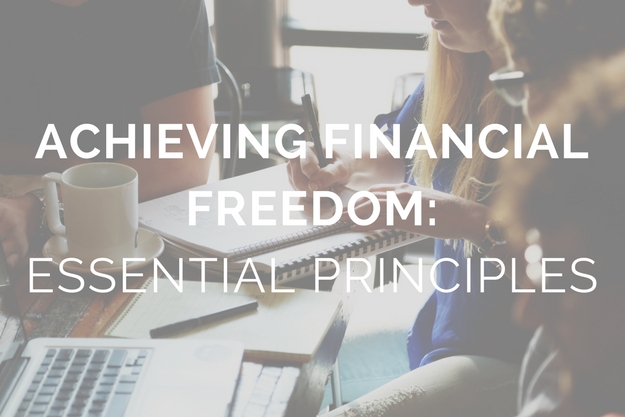Becoming a parent is perhaps the biggest of all life changes: the sacrifice of free time for tummy time, a sudden expertise in infant sleep cycles and bodily functions, and a host of financial considerations.
Yes, babies can be expensive, but you can keep costs manageable. Particularly in a city like New York, there are endless ways to spend money on your kids, many of which are unnecessary. Your child’s basic needs—food, shelter, clothing, and love—can be met on a budget. With the right perspective and planning, you can navigate the high-expense years of raising kids while still living below your means and investing in long-term goals like college or retirement.
Why Budget?
The birth of a baby marks a significant life change where priorities often change. It is all the more important to be proactive in aligning your lifestyle and finances with your priorities as you accommodate the increased expenses.
Evaluate your spending habits and consider where you can cut back to accommodate a baby, as the last thing you need as a new parent is financial stress. Think about the type of family home and lifestyle you desire and how you can better align your spending with those goals. There might be short-term sacrifices you make today in light of what you want to make possible in the future.
Pregnancy Expenses
Pregnancy carries its own expenses, many of which can surprise first-time moms. Anticipate these pregnancy expenses by finding ways to cut elsewhere. Pregnancy expenses, both unavoidable and optional, include:
- Maternity clothes
- Food (you’re growing a baby!)
- Babymoon
- Maternity photos
- Extra cabs
- Shoes (yes, your feet might grow!)
- Massages or physical therapy (either for medical reasons or indulgence)
How Much Does a Baby Cost?
The cost that comes with having a baby depends heavily on your lifestyle and life circumstances. As a starting point, assume monthly expenses of about $200 to $400 for essentials like diapers, wipes, and baby food. There are a whole host of one-time expenses you may need to plan for as well, in addition to ongoing discretionary spending for things like baby classes, toys, and birthday parties. Here’s how the expenses break down (based on rough city estimates dependent on individual circumstances):
What if Finances Are Tight?
If money is tight and you’re concerned about how to make it work, we hear you. Take heart knowing that what your baby needs most is your love, food, shelter, and clothing. Expensive “baby and me” classes, for example, are a luxury; plenty of happy, well-adjusted kids never stepped foot in a baby class. You can keep it simple and, if necessary, look for ways to make sacrifices to cover the basic needs. If you need to make serious spending cuts, take on more work, move in with family, or make other big life changes, keep in mind that these changes don’t have to be permanent. Your present situation is not your forever situation. And here’s the deal: once you become a parent, you’ll realize you are capable of doing so much more than you knew.
A Word of Caution
I often speak with parents who feel trapped in their jobs because they were already living at their means before having a baby—spending their whole paycheck each month and not saving. If you’re living a lifestyle that requires two incomes, you’re going to experience some pain once your baby arrives and lack the margin for baby-related expenses. Your more important exercise in the coming months will be gaining awareness of how you’re spending your money each month and identifying both small and big areas that you can change once your baby arrives.
Maternity Leave and Cash Flow
For working moms, find out now what maternity leave your employer offers. Don’t be afraid to ask for more if you’re not satisfied. Blaze the trail for those who will follow you. If you plan to self-fund some of your maternity leave, create a dedicated savings account to keep this cash separate from your checking account and other savings goals.
I also recommend talking to other women who have been on maternity leave with your employer. How the process work? Did paychecks arrive on time in a similar schedule as your regular pay? It’s not uncommon to experience a lag of several weeks in paychecks while you're on short-term disability. Be prepared and have some extra cash on hand to float you for a couple weeks or more.
Creating a Budget
Now to the ins and outs of making a budget. Keeping in mind the expected expenses outlined above and the priorities you’ve identified as a new parent, read over this budgeting article and then fill out this budget spreadsheet.
Congratulations, you’ve created a budget for your growing family! For advice on sticking to your budget and other habits for financial freedom, check out these articles:






